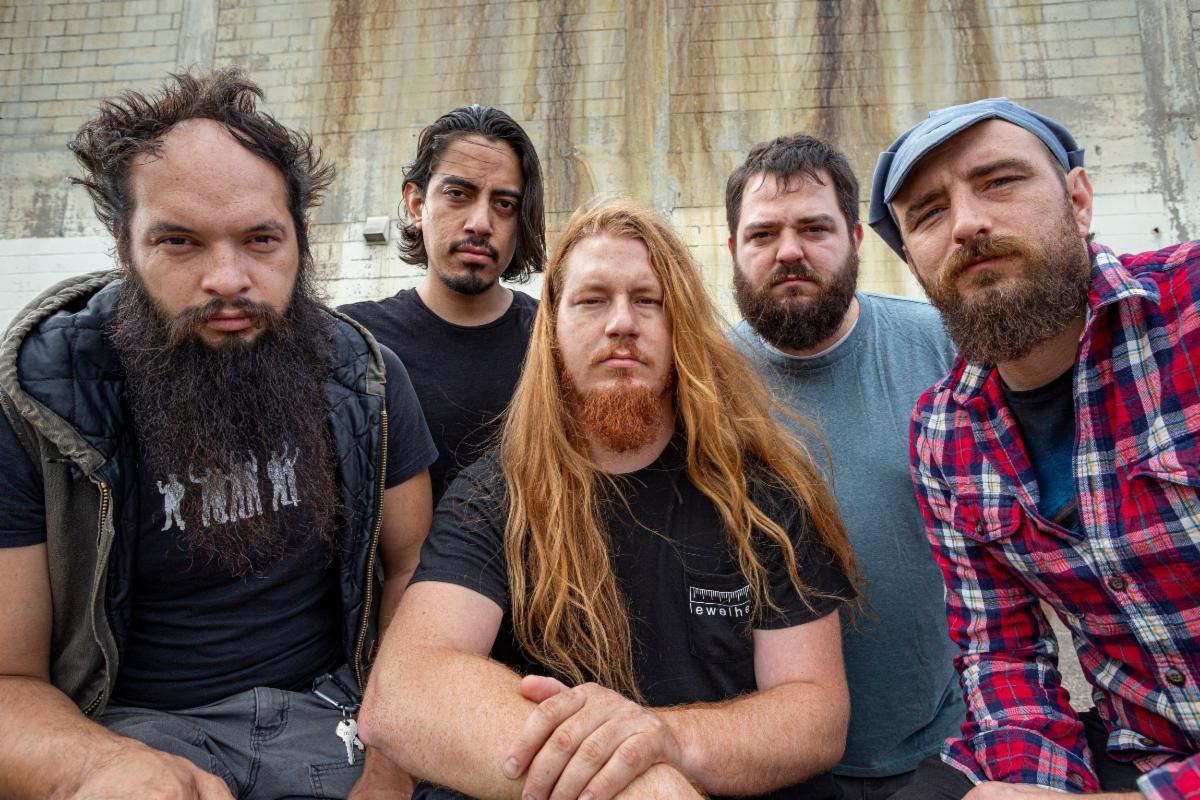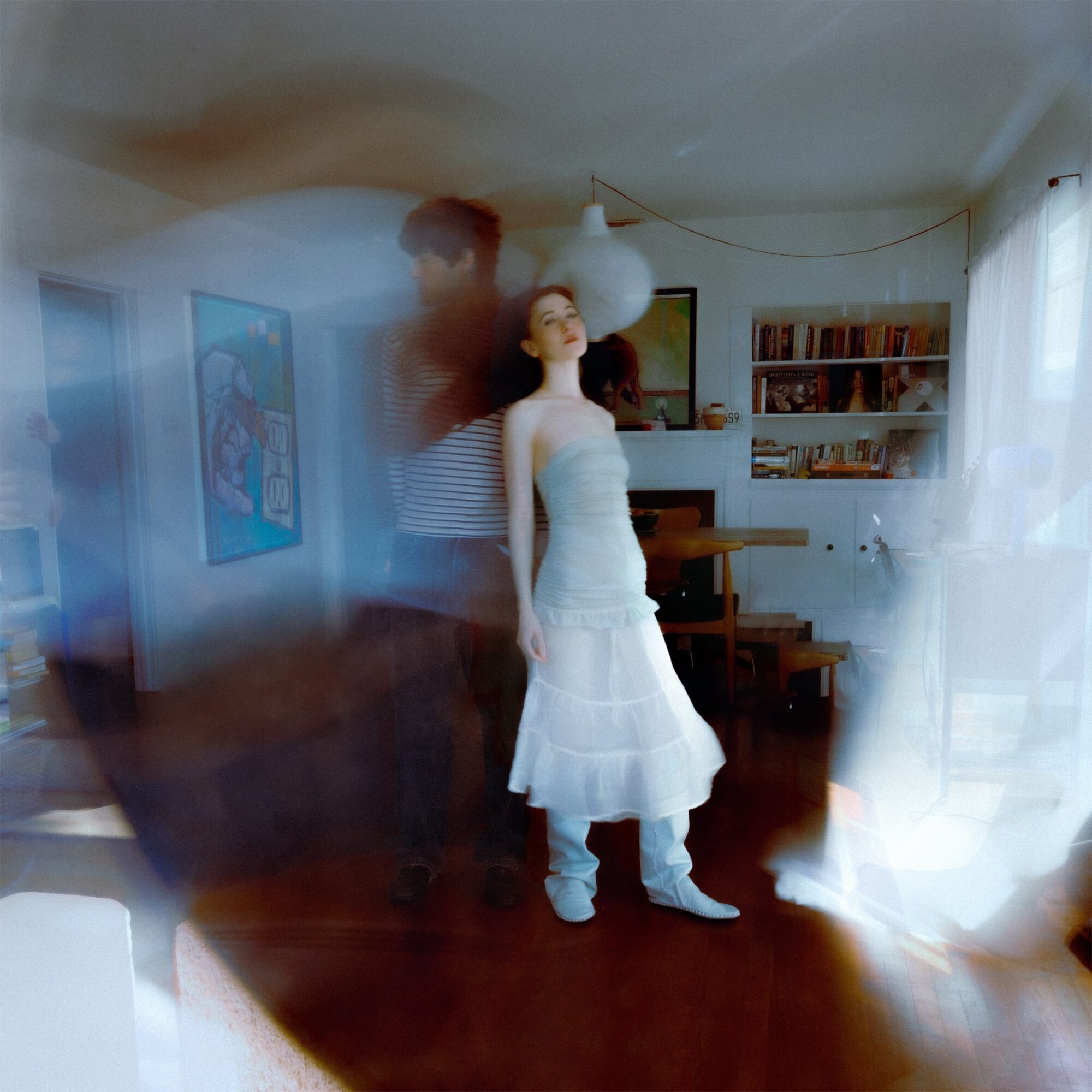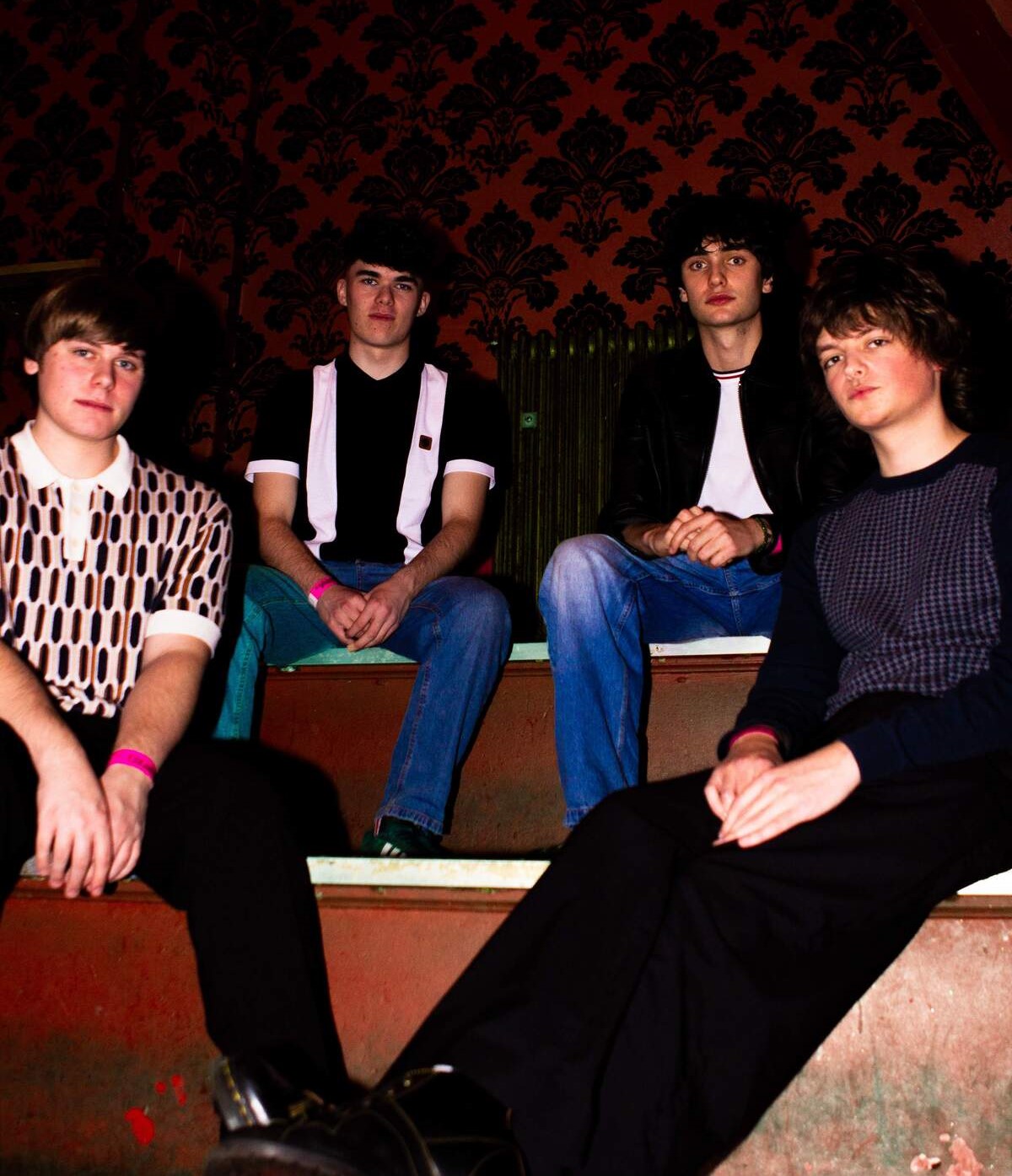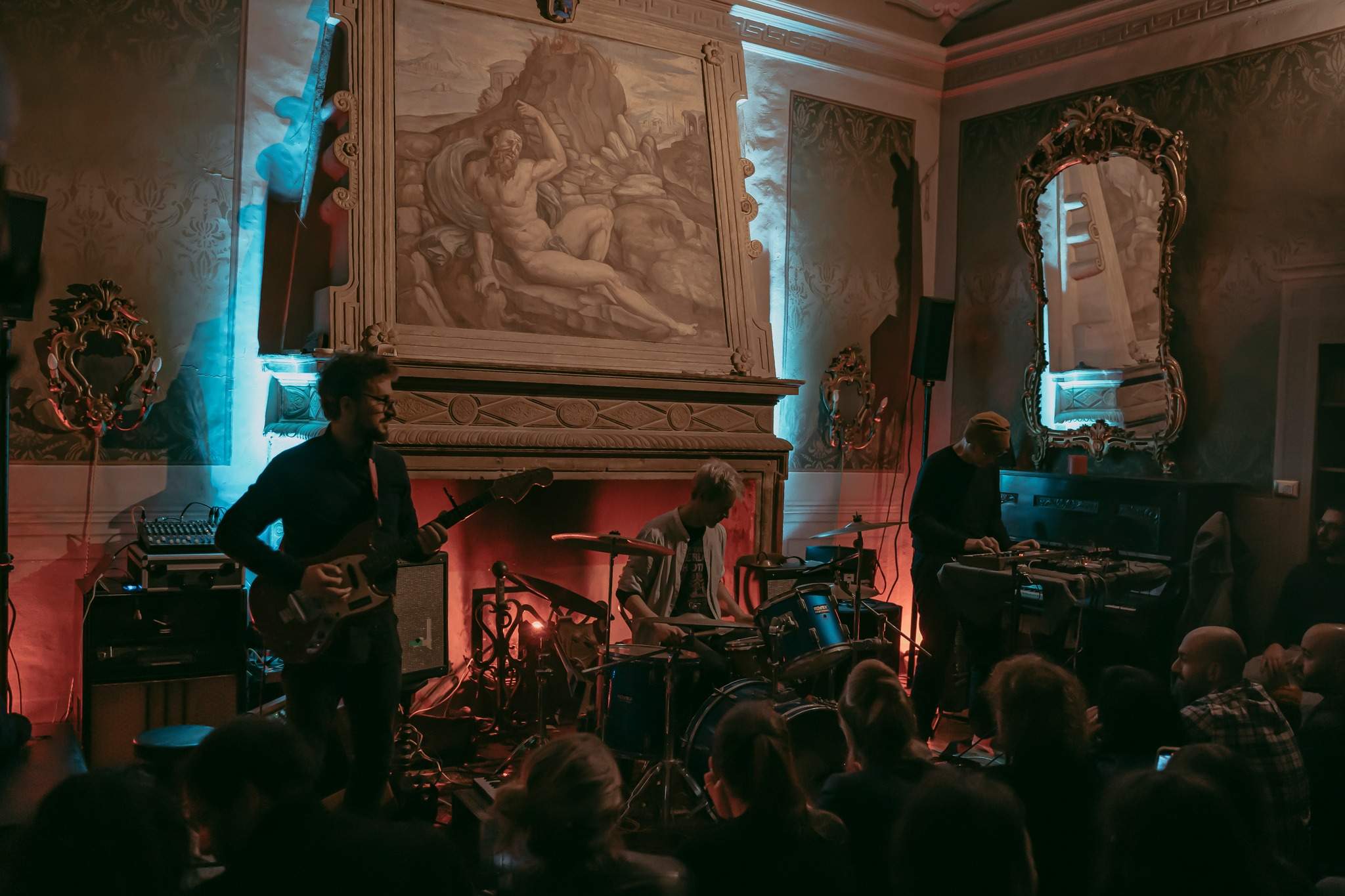Carrie Nation & The Speakeasy | Interview | New Album, ‘Logos’
Carrie Nation & The Speakeasy’s latest album, ‘Logos,’ is a bold blend of punk energy and acoustic instrumentation. This high-octane quintet from Wichita, KS, presents thought-provoking themes and varied arrangements with unbridled intensity and artistic ingenuity.
‘Logos’ delves into the dichotomy of reason and belief through complex soundscapes, powerful horns, and driving beats, creating a one-of-a-kind listening experience. The album’s inventive style and engaging narratives make it essential listening for fans of experimental acoustic music and thrashgrass.
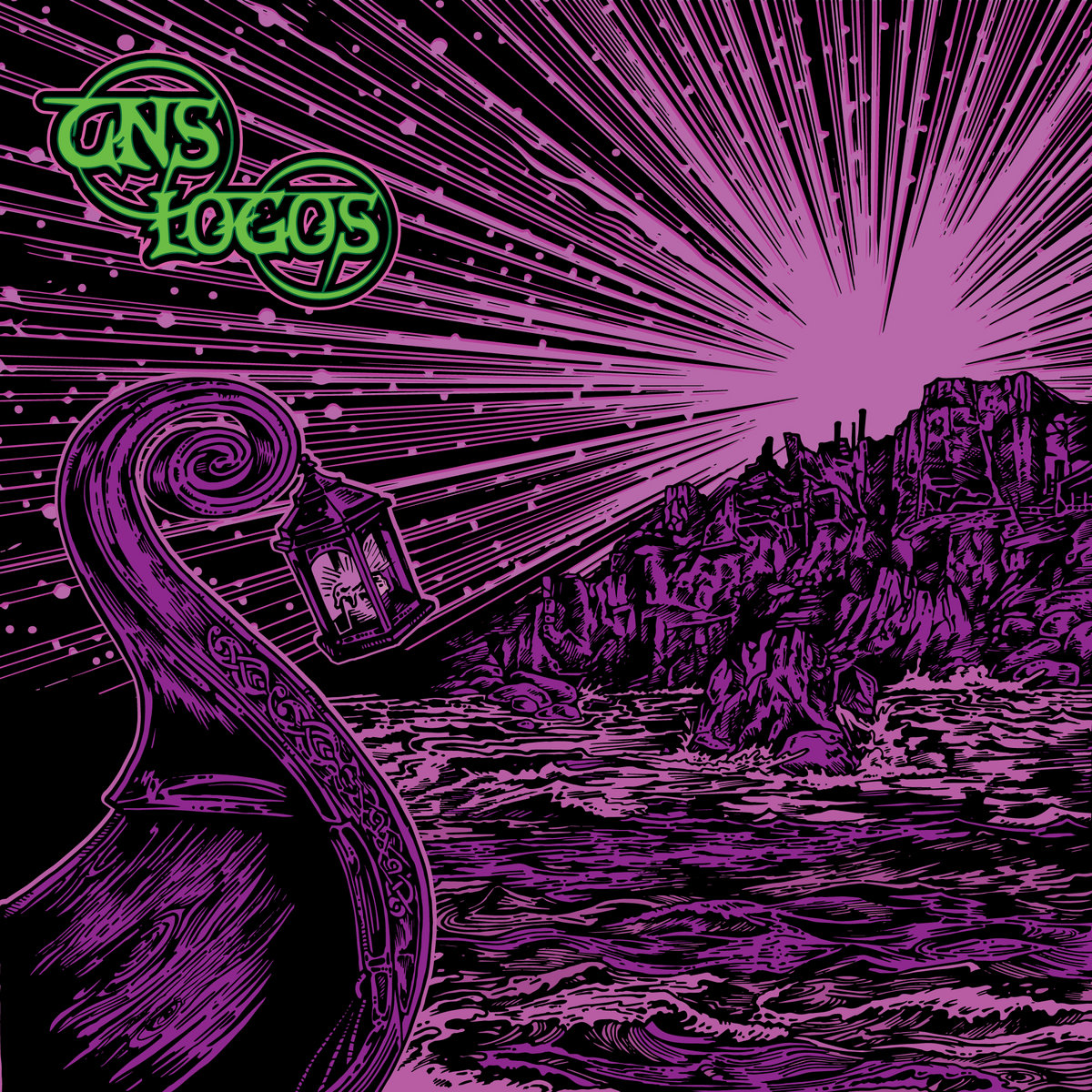
“Logos is an album about cycles, movement, and change”
How much time and effort did you invest in creating ‘Logos’?
Jarrod Starling: ‘Logos’ is an EP that follows our 2018 release, ‘Gnosis’. It includes songs and themes that I had been working on for several years, but it came together as a cohesive concept in 2018. My songwriting process is pretty private and isolated. I write everything on my own, then bring these skeletons to the band for them to flesh out. We had been playing some of these songs live as early as 2018, but we didn’t go into the studio for tracking until late 2019 or early 2020. We canceled a tour in 2020 due to the pandemic and didn’t want to release an album without the ability to tour, so we kept tweaking things with no clear deadline. As things opened back up, we began performing more and felt it was time to finally complete the album. The timing made for a strange and drawn-out process, but we’re happy with how it turned out.
Can you tell us about the inspiration behind the title ‘Logos’ for your latest album?
As a follow-up to ‘Gnosis’ (which means knowledge), I chose the album title ‘Logos’ (which means thought or reason) as a reference to the previous EP. These two EPs represent a distinct evolution in the band’s sound, and we wanted to emphasize this by choosing similar names. The albums are “headier” than our earlier releases, and both follow the framework of a non-narrative concept album. ‘Gnosis’ explored the cerebral theme of knowledge and whether objectivity defines truth. ‘Logos’ employs more visceral themes, yet retains a similar sonic approach and inquisitive lyrical content. ‘Logos’ is an album about cycles, movement, and change.
The band name Carrie Nation & The Speakeasy draws a connection to both Carrie Nation, the historical temperance activist, and the concept of speakeasies. Do you feel that your music carries an undertone of rebellion, or to what extent do you feel connected to it?
The band started in Wichita, KS, in 2007. Carrie Nation is a well-known 19th-century historical figure in this region, but less so outside of the Southern Plains. She was a religious zealot and anti-alcohol crusader. Speakeasy refers to the illegal drinking establishments that later emerged during Prohibition. When we started CNS, we were definitely a bar band, and alcohol was a common theme. We threw our own parties/concerts and sold booze out of our basement… a speakeasy, if you will. The band name was an ironic, tongue-in-cheek reference to our regional history and our enterprising approach to alcohol.
We definitely don’t feel as connected to the band name anymore. We’re still primarily a live band, but not really a bar band. We used to fill four-hour sets and play for a pittance and free booze. We don’t do that anymore; our current live shows are more about presenting art than celebrating a party. We were quite young when we started the band, and we’ve tried to distance ourselves from an identity tied to alcohol. It’s hard to shed a moniker and even harder to start over without name recognition, so we’ve resigned ourselves to keeping the name. However, we often present ourselves as “CNS” in our promo and art these days.
Your music is a fusion of various genres… How do you navigate the creative process to ensure your distinctive sound?
Our first album was definitely a jumble of genres. It had a lot of horn tunes, but it also included bluegrass and blues songs. It even had ballads and songs like ‘Drunkle,’ which would later define what our sound would become. We feel like we hit our stride with some of the writing on our second album, Hatchetations. That album is a better example of “fusing” those genres. We aimed to create a unique style and instrumentation that would allow us to combine these different musical traditions into a singular sound, instead of just jumping from genre to genre. The more recent albums are even more deliberate in their presentation and approach. On ‘Gnosis’ and ‘Logos,’ for example, there’s no trombone. Instead, they feature dynamic arrangements and sweeping interludes. These albums are noticeably darker and more aggressive. Both ‘Gnosis’ and ‘Logos’ were produced with Jonny Kenepaske at Dead Horse Sound Co. in Kansas City, who helped us create something different from our earlier work.
Recently, we’ve been enjoying crafting setlists that flow from beginning to end, incorporating more improvisational and ambient space. The current lineup has great chemistry for improv, which has helped create a bigger, fuller sound that bridges the different eras of our music. A current CNS show is a fast and spacey synthesis of all these elements.
‘Logos’ is described as a concept album. Could you elaborate on the overarching concept or theme that ties the songs together?
‘Logos’ is essentially about movement. It employs imagery of biogeomechanical cycles to explore themes of cultural migration and spiritual self-interrogation. There’s a recurring nautical theme that helps express the vast expanses of time and space that humans have traversed. ‘Soot Follows Cinder’ serves to establish a baseline of natural cycles, providing the lens through which to view the rest of the album. ‘Antonious Block’s Confession’ uses a scene from Bergman’s The Seventh Seal to illustrate the shift from belief to knowledge, exploring the cycle of faith and skepticism. ‘Cover the Altar’ is a ballad about human migration, focusing on the cultural traits that are lost, retained, or gained over distance and time. It highlights how national borders are arbitrary constructs, while human migration is inevitable and unceasing. ‘Gulls of the Glow’ is a dream-like depiction of nautical exploration, presenting the promise of a new life and new land as a beacon of hope amid treacherous seas. However, the treasure found on shore eventually leads to the downfall of those who sought it, completing the cycle of desire and suffering. Fun stuff.
How do you approach translating the energy and intensity of your live shows into the recording studio?
For a long time, we were a road band. We defined ourselves by our live performances and our ability to make each night unique. The recordings weren’t an afterthought, but they weren’t our priority either. Our live set is fast and aggressive, while our early albums are folkier and more swing-oriented. Sometimes, people familiar only with the albums are surprised when they see us live for the first time. We’re planning to release a live album later this year.
I don’t think we’ve ever tried to “recreate” our live show in the studio. If anything, we’ve aimed to bring more of the dynamics, precision, and intentionality from the studio to our live shows. The first two albums were just collections of songs, so we recorded them for posterity and to sell as merch. ‘Gnosis’ and ‘Logos’ were treated more like complete “pieces” with several movements. These recordings are a better representation of how our live set is structured, with one tune seamlessly melting into the next.
I don’t think we’ll ever be a “studio” band focused solely on album production. We love traveling, and we really enjoy the spontaneous creativity that comes with performing live. The songs are still fun to play, and the current lineup is incredibly talented. It’s a blast to perform with them. We’ve always tried to make each album better than the last, and I don’t think that will change. We’re currently in the writing process for our next project, and I’m excited about what this group can create in the studio.
“I’d say the sound is darker, headier, faster, and more experimental”
How do you feel your sound has evolved since your earlier releases?
I’ve touched on this in my other responses, but overall, I’d say the band has become a more serious and intentional project. We still perform with levity and an appreciation for spontaneity, but we now place much greater emphasis on dynamics and artistic exploration. There’s a lot more live soundscape building and pedal noise work, which wasn’t present in our earlier releases. Embracing new production techniques has added more variety to our sound compared to when we recorded all of the instruments acoustically and mostly dry. I’d say the sound is darker, headier, faster, and more experimental.
Did you work with any other artists or musicians on ‘Logos’?
We’ve been fortunate to meet and play with many amazing musicians over the years. For this album, we invited our friends Kellie Everett, Liz Sloan, and Dane Talley to help us achieve the sound we were aiming for.
Kellie Everett plays saxophone for Missouri-based band The Hooten Hallers. We’ve played a lot of shows together, and we thought she’d be perfect for our instrumental intro, ‘Bad Miracles’. She recorded a Moondog-esque layering of woodwinds that sets a dark, psychedelic tone for the rest of the album.
We met Liz Sloan McGovern over a decade ago when she was playing fiddle with Bob Wayne and the Outlaw Carnies. Since then, we’ve shared the stage with her and her husband, Jared, in their act The Urban Pioneers, and with Jayke Orvis and the Broken Band before that. On this album, she’s featured in our migration ballad ‘Cover the Altar’. This song is about cycles of human migration, and has an “old world-new world” push and pull. Liz did a fantastic job capturing that feeling with her fiddle work in the song and her expressive improvisation in the following interlude.
Dane Talley played all the pianos and organs on this album. He also contributed to ‘Gnosis’. We’ve known Dane since we were a young band, and we always love having him sit in whenever we’re in the same area. He provided much of the depth and fullness in some of the bigger sections of the album. He’s seen our band evolve, and whether he’s playing electric guitar or keys, he always seems to know exactly what these songs need.
Looking ahead, what can fans expect from Carrie Nation & The Speakeasy in the near future?
In June, we will embark on our 5th European tour, and we’re excited to bring this new lineup and new songs to our fans over there. As I mentioned earlier, we’re hoping to release a live album soon, but we’re also already working on a new batch of songs. They will be heavier and weirder. Our new instrumentation has opened up some interesting sonic possibilities, and we’re eager to explore new sounds. For the upcoming tours, we’ve got an amazing trumpet player, Adam Marchand, and we’ve added our friend Eric McMyermick on the accordion. We’re looking forward to showcasing this creative and talented ensemble. We’ll continue to strive for an engaging and unique live show, and create authentic, thoughtful music.
Klemen Breznikar
Carrie Nation & The Speakeasy Official Website / Facebook / Instagram / Twitter / Bandcamp / YouTube
‘Soot Follows Cinder’ / ‘Antonius Block’s Confession’ by Carrie Nation & The Speakeasy | New EP, ‘Logos’

